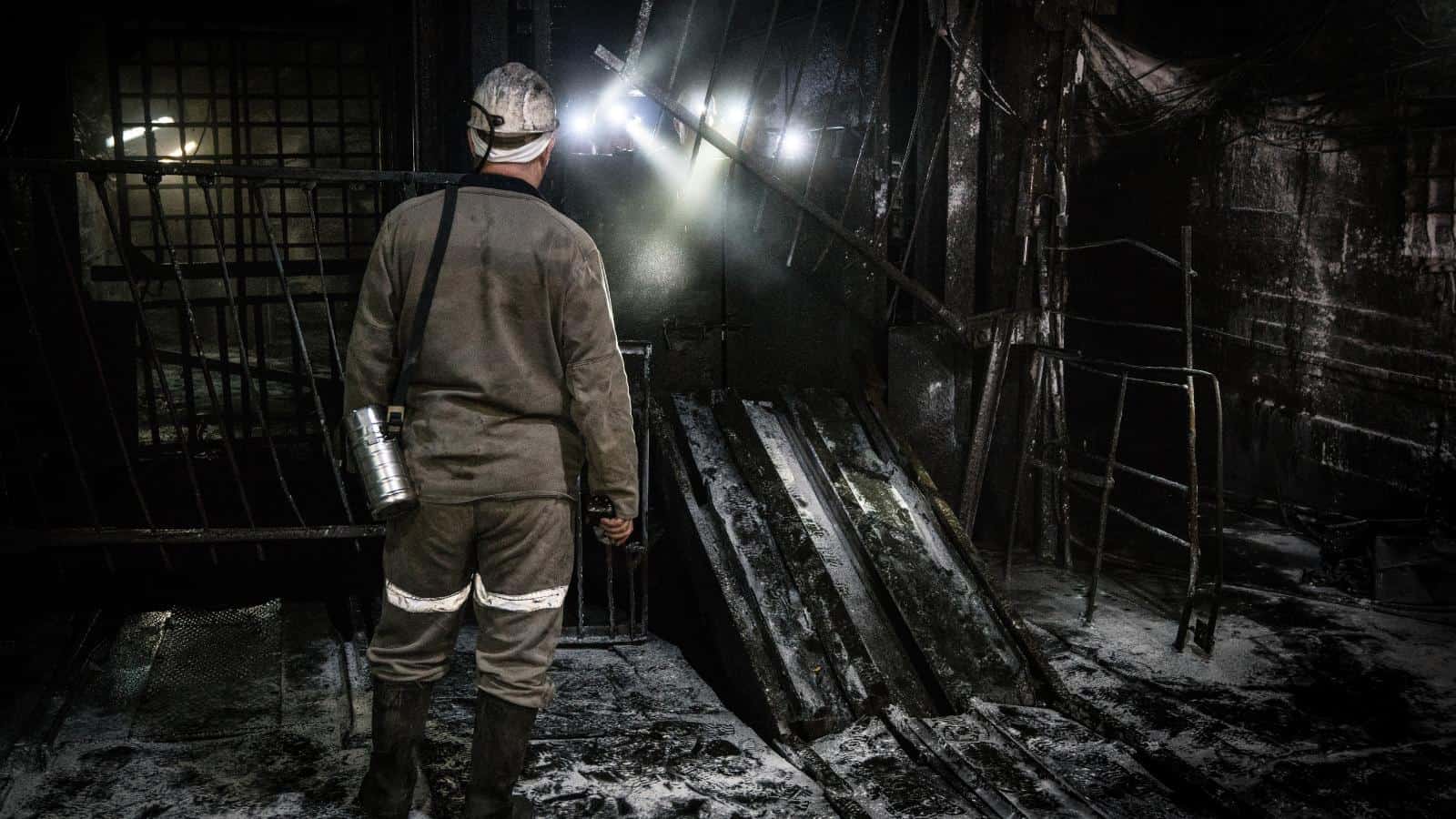Choosing a career path is a significant life decision influenced by a multitude of personal factors, but it’s essential to consider the potential impact of any job on your mental health. This article describes which 18 common professions are the most inherently stressful, challenging, or traumatic and could potentially result in mental health problems over time.
Social Worker

Social workers play a vital role in society, but their jobs can be emotionally draining and thankless, and they can involve long hours. They often deal with clients living in difficult or upsetting circumstances, such as poverty, abuse, or addiction. According to Gitnux, 39% of social workers are currently burned out, while 75% will experience burnout at least once within their careers.
Nurse

Nurses work long hours in sometimes stressful, traumatic environments and face constant pressure to consistently provide high-quality patient care. If they make a mistake or forget something, they could risk someone’s life! This unforgiving work is also often made more challenging by staffing shortages and antisocial shift patterns (night working).
Police Officer

Law enforcement officers see the worst aspects of society on a daily basis, from violence and abuse to drug use, gang activity, and prostitution. Daily exposure to such situations can be traumatic and depressing, and many police officers exhibit symptoms of PTSD, especially those involved in responding to crimes such as murder and domestic violence.
Teacher

Educators face a variety of challenges, including large class sizes, limited resources, disruptive student behavior, and increasing pressure from national testing standards and school inspectors. One NIH study found that burnout (up to 74%), stress (87%), and anxiety (77%) were common among teachers, and they were more likely to be depressed than the average person.
Fast Food Worker

This demanding job often comes with a negative reputation and low degree of respect, making the low pay, long hours, and limited opportunities for advancement even more challenging to bear. The intense, fast-paced working environment and the (sometimes) rude or even abusive customers can also increase feelings of stress, anxiety, and job dissatisfaction.
Customer Service Representative

Spending your day dealing with frustrated or angry customers is bound to get to anyone, even those with the fortitude to cope with high-stress conversations. Customer service representatives may also have to work long hours, including evenings and weekends, which can disrupt their family or social life and cause mental health problems due to a poor work-life balance.
Construction Worker

Construction workers have a physically demanding job with long hours and immense pressure to meet tight deadlines, even when circumstances beyond their control cause delays. The long-term health impacts of heavy lifting and working around hazardous materials (like asbestos) can also be significant and not worth the (typically) low pay.
Journalist

Journalists often work long hours under pressure to meet deadlines, and those covering crime or corruption stories may be exposed to traumatic events, graphic content, or disheartening social injustice. A study on the mental health of journalists in Springer Nature reported that many “reported either PTSD, PTSD symptoms, depression, and/or substance use.”
Long-Haul Truck Driver

Spending long hours on the road can be very lonely, while the stress of meeting deadlines or the mundane monotony of highway driving can also be challenging to cope with. Truckers also frequently suffer from sleep-related disorders such as insomnia and sleep apnea due to their irregular sleep schedules and sometimes loud/uncomfortable sleeping environments.
Funeral Director

While they may be a social necessity and often much-appreciated, embalmers and funeral directors deal with death and grief on a daily basis. Even the most experienced funeral workers can be traumatized or distressed when dealing with incredibly upsetting deaths, like those of children or young people. This can result in depression and suicidal thoughts.
Casino Worker

Working in a casino environment might sound like fun, but it can be stressful, fast-paced, and exhausting. Casino workers may be exposed to alcoholics, gamblers struggling with addiction, or inappropriate behaviors from drunks or big losers. The irregular hours and constant exposure to bright lights can also disrupt their sleep patterns and cause fatigue and migraines.
Roofer

Roofers often work on uneven surfaces and in unpredictable weather conditions, so injury rates are high. According to Roofing Contractor, the profession has the second highest rate of fatal workplace injuries—57.5 roofers will die at work for every 100,000 full-time employees. The threat of injury or death can make the job anxiety-inducing and stressful.
Sanitation Worker

This vital but extremely underappreciated job can be dirty, unpleasant, and physically demanding. There is also a constant threat of coming into contact with hazardous materials, such as used needles, harmful bacteria, or improperly discarded chemicals. They also have to work under all weather conditions and can quickly become disillusioned and unhappy.
Firefighter

Fighting fires sounds like a heroic and exciting profession, but the reality can be very different. Firefighters face extreme danger and physical exertion and may witness traumatic events such as death, severe injuries, and destruction. They also suffer boredom during times when their services aren’t needed, yet they must always be prepared and vigilant.
Debt Collector

Like parking wardens, debt collectors face hostility and abuse from the people they deal with on a daily basis, many of whom are struggling financially. Feeling compassion may be natural, but it ultimately makes debt collection more emotionally stressful and even prompts feelings of guilt or self-loathing. Working under such conditions can be stressful and depressing.
Miner

Mining is a dangerous profession with a high risk of injury and death from cave-ins, explosions, and toxic materials. The long hours spent underground, often in cramped and dark conditions, can also be mentally taxing and lead to long-term medical conditions like respiratory illnesses. Miners have a higher rate of depression and substance abuse than the general population.
Lawyer

Law is a prestigious and high-paid profession with few physical dangers, but it’s notorious for its demanding nature. In order to be successful and respected, lawyers face long hours, intense pressure, and strict deadlines, and they are often permanently ‘on call.’ The stress and workload involved can lead to burnout, especially in fresh graduates looking to prove themselves.
Janitor

Housekeepers and janitors are vital in keeping our schools and public buildings clean and sanitary. Yet, they often end up doing the toughest, dirtiest jobs that no one else is prepared to do! Pay is low and appreciation is rare, leading to high rates of job dissatisfaction and even feelings of worthlessness and discontent, which can lead to depression.
Read More: Why People Aren’t Religious Anymore: 15 Simple Reasons

As society evolves, so does our approach to spirituality. This article looks at the subtle yet profound shift from traditional religious adherence to a more personal, evidence-based belief system.
Why People Aren’t Religious Anymore: 15 Simple Reasons
17 American Attractions That Not Even Americans Want to Visit

The United States of America—land of the free, home of the brave, and the location of some of the most ‘unique’ tourist attractions you’ll ever lay eyes on.
Get ready to chuckle, scratch your head, and maybe even facepalm as we look at 17 American attractions that not even Americans think are worth visiting.
17 American Attractions That Not Even Americans Want to Visit
17 Fairy Tales That Are Now Considered Racist

While fairy tales weave magical narratives that span generations, many emerge from historical and cultural contexts tinged with biases. Hiding in many of these tales, racial undertones can be found. Let’s look at 17 fairy tales that have deeper implications.
17 Fairy Tales That Are Now Considered Racist
18 Common Traits Found in Adults Who Had Unhappy Childhoods

Being a parent is a hard job, so even those who are truly trying their best will often miss the mark on creating the best environment for their children. Unfortunately, this means that many of us grow up with far-from-perfect childhoods that affect us into adulthood. Here are 18 common traits found in adults who had unhappy childhoods.
18 Common Traits Found in Adults Who Had Unhappy Childhoods
18 Things Old People Just Can’t Get On Board with Today

Over the past few decades, society has evolved, and with it, so have a few things that older generations find it uncomfortable to get the hang of. While younger generations are easily able to adapt to these changes, some of which are drastic, others may be struggling slightly. Here are 18 things the elderly may have difficulty learning.
